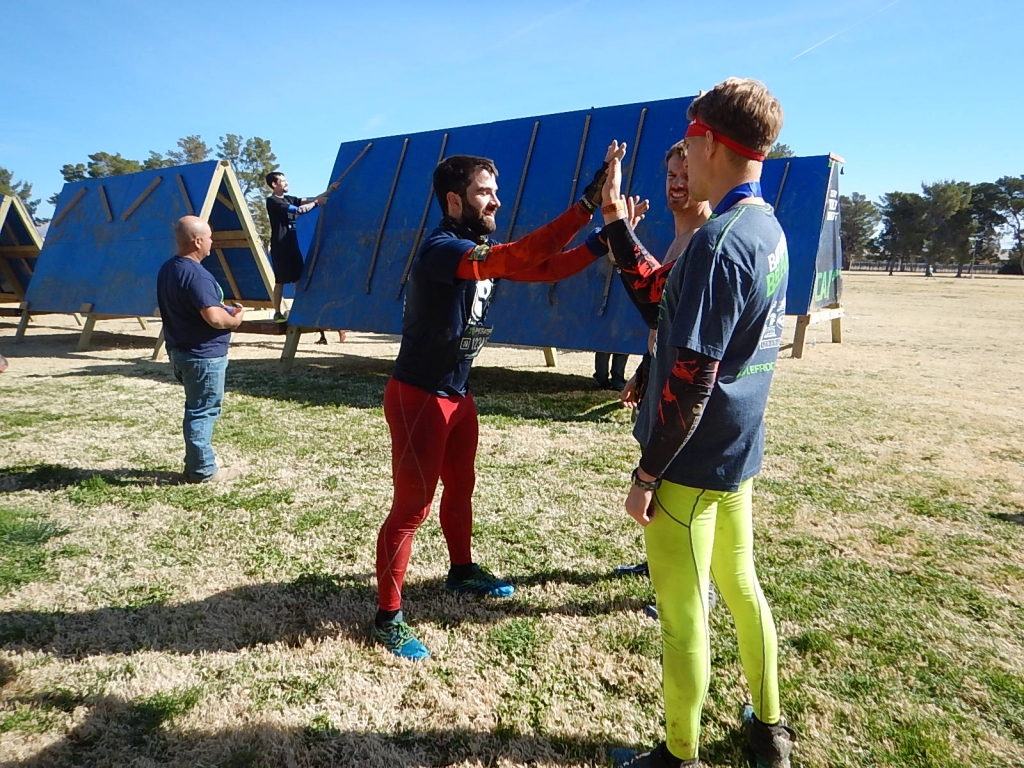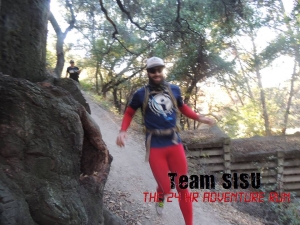
Warning: Unconventional opinion ahead! I don’t pay attention to what place I finish in an event, and I don’t think you should either.
We live in a world that focuses on being “the best of the best.” We regularly applaud the person who gets first, while looking at the second place finisher with disgrace. We think that they must have done something wrong that kept them from being on top. In fact, they did something amazing to be second! I think that the mindset of “second is the first loser” and the associated culture is destructive and counter-productive, even for people who regularly appear on the top of the podium. Here’s the start of why I think so.
In the words of the great Sean Corville, “I don’t care about your time. Your time doesn’t help someone battling cancer, battling obesity, or battling PTSD. I want to see your best because your best will make you better.” I agree, with the small exception that I’m a data nerd.
 For all except for the top echelon, competing in OCRs is about getting out of your comfort zone to experience something unique and difficult. OCRs allow people to confront challenges that they wouldn’t otherwise see, and overcome some of their core fears. For the average racer, finishing is an accomplishment because by finishing the person was active, burned calories they wouldn’t have, showed themselves that they can accomplish hard tasks, and spend time with positive, supportive people. I think we should celebrate that accomplishment, perhaps even more than we celebrate the top finishers.
For all except for the top echelon, competing in OCRs is about getting out of your comfort zone to experience something unique and difficult. OCRs allow people to confront challenges that they wouldn’t otherwise see, and overcome some of their core fears. For the average racer, finishing is an accomplishment because by finishing the person was active, burned calories they wouldn’t have, showed themselves that they can accomplish hard tasks, and spend time with positive, supportive people. I think we should celebrate that accomplishment, perhaps even more than we celebrate the top finishers.
For those of us who don’t view finishing as a challenge anymore, our success is defined by how we do on the obstacles and how we handle the running. It’s easy to measure that based on our rank in our age group or overall but, in my opinion, that’s a poor measure. Your rank is based on who showed up that day, and how well they did. In my experience, there’s frequently a random unknown that shows up and rocks many of these events (like Mark Jones at BattleFrog Los Angeles or Ryan Atkins at World’s Toughest Mudder 2013 before he became famous). Those are factors that you cannot and should not control. In fact, I love seeing a new face out there in front of me (see below).
Instead, I believe that you should define your success based on you.
Your overall time and obstacle success percentage are objective measures that are in your control. Did you run at a decent pace the whole time? Did you run negative splits? Did you climb to the top of the rope? Did you make the rig? Did you put down the bucket? There are so many objective measures. For non-data nerds, you also can subjectively measure how you felt during the event, and when you finished. Did you feel relaxed and smooth as the miles and obstacles flew by? Did you feel spent at the end, like you left it all out on the course?
If you define your success based on you, then you can more reliably track your progress. No matter what happened, if you achieved a new personal best, that accomplishment should be celebrated. Even if you’re not aiming for a personal best, think of what you want to accomplish on course, then try to achieve that: define your own success.
Subtip: Rabbits are helpful.
One of the reasons I love racing with a friend of mine, Fabian Lindner (flownotforce.com), is that he’s better at obstacles than me, and I’m better at running than he is. This means that we trade positions throughout the race, frequently. My competitive spirit sees Fabian in front of me and challenges me to tackle harder obstacles efficiently while running faster to make up for my weaknesses. I don’t define my success based on if I finish ahead of or behind him. Instead, I use him to help me achieve a new best. Thanks, Fabian!
Disclaimer: The viewpoints expressed by the authors do not necessarily reflect the opinions, viewpoints and official policies of Mud Run Guide LLC, or their staff. The comments posted on this Website are solely the opinions of the posters.


Great post, It applies to anything difficult you do in life, from building a business to solving a major problem using the scientific method.
Thank you for sharing it.
I had to take this stance long ago when I did my first OCR with a group of much faster guys. I was passed almost constantly, and there is this primal “must keep up” or “I’m failing” … then we would come to an obstacle & I would blow past all the people who had just passed me. This pattern has continued. I’m not the fastest runner & I generally hate running, but I love overcoming obstacles.
after all … The Obstacle is The Way.
Great article and insight, always love to hear from Doc Red Tights